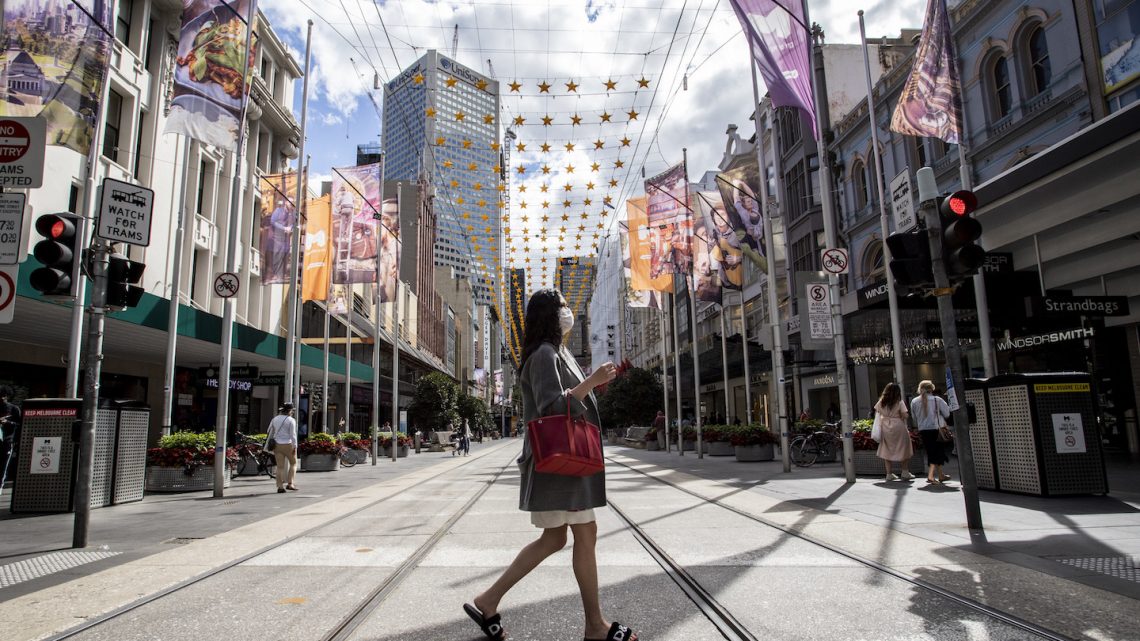
How Australia Made One of the Biggest COVID Recoveries in the World
November 27, 2020As of today, the Australian state of Victoria—which just a few months ago recorded upwards of 4,000 new coronavirus in a single week—has seen no new cases for 28 days: a period that indicates the virus has been effectively eliminated. According to conventional wisdom, the state is officially COVID-free.
It’s the result of one of the longest and harshest lockdowns in the world: a 15-week haul during which businesses were shuttered, mobility was strictly limited and curfews were imposed to keep Victorians from leaving the house after 8PM.
That lockdown was officially lifted a month ago, and since then Victoria has become one of only three states in Australia to have no active cases of COVID-19, along with Tasmania and the Australian Capital Territory.
Australia at large is also on track to achieve elimination, with current numbers being the lowest the country has recorded since March, when the pandemic had only just arrived. After reaching a peak seven-day average of more than 500 cases in mid-August, the nation has now recorded a streak of 40 days with a seven-day average of less than 20.
Only two countries in the world have made a bigger recovery than that: China, which went from a seven-day average of more than 4,600 in mid-February to a current seven-day average of just under 24, and Singapore, which went from a seven-day average of more than 1,000 in mid-April to a current seven-day average of just under eight.
The common denominator? Intense, state-enforced lockdowns.
While other countries like Argentina, Chile and Honduras have variably subjected their citizens to tighter or longer restrictions, what’s common to the three countries that have had the most success in recovering from a severe COVID outbreak is the way in which their governments have responded: namely, by confining people to their homes for extended periods of time and limiting their daily freedoms.
Whether or not that represents the best or most egalitarian approach to handling the pandemic is up for grabs, but in terms of efficacy against the virus the results speak for themselves.
"When you look at Australia compared to the rest of the world, well frankly there is no comparison," Prime Minister Scott Morrison said on Thursday, according to the ABC. "Australia is in a handful of countries that stand out not just for how we've suppressed the virus, but how we have mitigated the economic impact on Australia.”
It’s highly likely that the run of so-called “doughnut days”—that is, a day with zero new cases—will come to an end soon, as international arrivals pour into hotel quarantine around the country in the lead-up to Christmas. Moreover, it’s worth noting that other countries like Israel and Ireland managed to get their daily numbers down to the single digits before being hit with fresh outbreaks that flared up to several thousand new infections a day.
For now, though, and as long as the country’s contact tracing programs stay on top of any outbreaks, Australia finds itself in an enviable position—particularly as so many other countries around the world continue to set new records for case numbers. And it’s a position that, as University of Melbourne epidemiologist Tony Blakely suggests, didn’t always seem achievable.
"It was a bit of a longshot to actually get all the way to elimination [in Victoria]," he told Fairfax. "I'm pleasantly surprised that we’ve been able to bring it back from that high point."
Follow Gavin on Twitter


